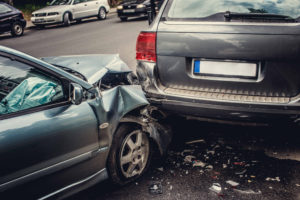Truck accident liability refers to responsibility in the event of an accident. Ohio is one of the busiest states in the US regarding heavy-duty transport of large commercial vehicles such as trucks. As such, one of the important cities in the state – Cincinnati, often sees a lot of trucks running on duty. Subsequently, the city also has a higher probability of truck accidents.
Commercial truck drivers, trucking companies, manufacturers of heavy-duty vehicles, and even cargo companies should know about Cincinnati’s truck accident liability laws. Read on to know all about the city’s truck accident laws from the best Cincinnati truck accident attorney.
Why is it important to understand truck accident liability?
Truck accidents are much more complicated than accidents caused by smaller, private vehicles. First of all, truck accidents are often more serious, and damages or casualties can be severe. So, it becomes crucial to determine which party is at fault. Secondly, trucks are commercial vehicles, so it is not always the truck driver who is at fault. Depending on the nature and cause of the accident, other parties involved, such as the trucking company or the manufacturer of the truck, can also be liable for the accident.
Due to these two factors, it’s important for all parties involved to clearly understand who is to be held accountable for the incident.
Who is liable for truck accidents in Cincinnati?
Below, you will find a list of all parties who can be liable for truck accidents and the different conditions that can hold them accountable.
The Truck Driver
The first and obvious party that can be liable for a truck accident is the driver. Here’s a list of possible cases where the laws dictate that the truck driver is the one at fault:
- Driving under influence (DUI): If the truck driver is driving under the influence of alcohol or other intoxicating substances, that can seriously hamper their motor abilities and alertness.
- Negligence: Negligence can be due to various reasons, such as driving above the speed limit, breaking or violating traffic rules, etc.
- Distraction: If the truck driver fails to keep their attention on the road and is distracted for any reason. The cause or nature of distraction can be divided into three categories.
- Manual distraction involves the driver physically removing their hands from the wheel.
- Cognitive distraction is when the driver takes their attention to the road and their surroundings, such as other vehicles on the road.
- And finally, a visual distraction is when the driver takes their eyes off the road for whatever reason.
Sometimes, a single activity can fall under all three categories. For example, if the driver is texting or using their phone while driving, they might be taking their hands off the wheel (manual), diverting their attention to the phone (cognitive), and looking at the phone instead of the road (visual) all at once.
The Trucking Company
In some cases, the liability of the accident may fall on the trucking company.
A common example is when the company forces drivers to be on duty for extra hours. The state laws dictate specific hours of service that truck drivers and the trucking companies must follow. The hours of service are slightly different for passenger vehicles and cargo vehicles. Trucks often carry cargo rather than passengers, so the permitted hours of service as per the state laws are as follows:
- One driver cannot be on-duty for more than 14 consecutive hours. The laws state a maximum of 14 hours on-duty for a driver and 10 hours off-duty consecutively.
- Within the 14 hours of the on-duty session, the driver is permitted to drive only for 11 hours.
- There is also a weekly limit of 60 hours on-duty within seven consecutive days if the truck operates daily, or a maximum of 70 hours on-duty within eight consecutive days for trucks that do not operate daily.
If the employer or the trucking company keeps their drivers on duty for more than the above-mentioned periods, they will be held liable in case of an accident. Driving for long hours beyond the permitted duty time can cause drivers to be fatigued, increasing the risk of accidents. If drivers are forced to drive longer by the company, then the fault for the accident lies not on them but on their employers.
Usually, the maintenance and regular servicing of the vehicle are also done by the trucking company. If the accident is caused due to defects in the vehicle arising due to poor maintenance, that will also be the trucking company’s fault.
The Cargo Company
The on-boarding of cargo on trucks is the responsibility of the cargo company, not the driver or the trucking company. If the accident is caused due to poorly loaded cargo or overloaded cargo, then it will be considered the fault of the cargo company for not following safe practices. Every truck has a limit to the maximum weight of goods they can carry, and the cargo company must follow it and ensure that cargo is loaded securely. When they fail to do so, and it leads to an accident, they will be held liable as per the law.
The Truck Manufacturer
If the accident is caused due to any manufacturing defect in the truck, then the manufacturing company will be liable for the accident. However, it’s important to determine that the defect is a ‘manufacturing defect’, such as poorly designed parts or the use of sub-par components.
As already mentioned, defects caused by poor maintenance will be the trucking company’s fault, not the manufacturer’s. And in some cases, if there is enough evidence that the driver was aware of some minor defects (not serious enough to cause an accident), but they don’t inform their employers about it, causing the issue to worsen and lead to an accident. The accountability can also lie to the driver for failing to notify the defect on time.
Conclusion
Accidents involving smaller and non-commercial vehicles such as cars and bikes are usually drivers’ fault. But since truck accidents are not as simple, it can be confusing to determine who is liable for a truck accident. At the same time, due to the serious nature of such accidents, it is extremely important to figure out which party should be held accountable for damages or casualties. Knowing these laws regarding truck accident liability in Cincinnati will help all involved parties be better prepared in case an incident does occur.
Contact our Cincinnati injury lawyers to learn more about Cincinnati truck accident laws.





